We wouldn’t dream of abandoning our vast semi–annual Most Anticipated Book Previews, but we thought a monthly reminder would be helpful (and give us a chance to note titles we missed the first time around). Here’s what we’re looking out for this month—for more May titles, check out our First-Half Preview. Let us know what you’re looking forward to in the comments!
Want to know about the books you might have missed? Then go read our most recent book preview. Want to help The Millions keep churning out great books coverage? Then sign up to be a member today.
Furious Hours by Casey Cep: Did you know Harper Lee wanted to write her own true-crime story à la In Cold Blood? That following the publication of To Kill a Mockingbird, Lee spent a year living in the Alabama backwoods to report it, and many more years in research, but ultimately never completed the work? In Furious Hours, Casey Cep completes the work Lee couldn’t, writing a vivid portrayal of a killer, but also exploring the effects of fame and success on one of the most famous writers in U.S. history. (Nick)
Home Remedies by Xuan Juliana Wang: Home Remedies, forthcoming in May 2019, is a debut collection of stories by Xuan Juliana Wang. The characters in the 12 stories vary from an immigrant family living in a cramped apartment on Mott Street who tries very hard to fit in, to a couple of divers at the Beijing Olympics who reach for their success. Wang conveys a promising message through her mind-boggling stories that whoever they are and wherever they are from, they have their rights to live extraordinary lives. (Jianan)
Lanny by Max Porter: The follow-up to Porter’s highly lauded Grief Is a Thing With Feathers, which won the International Dylan Thomas Prize. This follow-up gives readers all the experimental typography and poignant insight they might expect—with a twist of gut-wrenching suspense thrown in. Lanny is a mischievous young boy who moves to a small village outside of London, where he attracts the attention of a menacing force. Porter has done it again. (Claire)
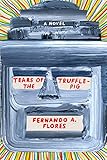 Tears of the Trufflepig by Fernando A. Flores: Move over, chupacabra—there’s a new mythical Southwestern beast in town: the trufflepig, a creature worshipped by a lost Aranana Indian tribe in this exuberant novel set on a trippier version of the American border. Drugs are legal in this near-future society, but the new (illegal) craze is “filtered animals,” extinct species revived, Jurassic-park style, and sold at great cost. The novel follows Esteban Bellacosa, trying to live the quiet life amid the region’s traffickers, obscenely rich pleasure seekers and legends. This is Flores’s first novel after a short story collection, wonderfully titled Death to the Bullshit Artists of South Texas. (Matt)
Tears of the Trufflepig by Fernando A. Flores: Move over, chupacabra—there’s a new mythical Southwestern beast in town: the trufflepig, a creature worshipped by a lost Aranana Indian tribe in this exuberant novel set on a trippier version of the American border. Drugs are legal in this near-future society, but the new (illegal) craze is “filtered animals,” extinct species revived, Jurassic-park style, and sold at great cost. The novel follows Esteban Bellacosa, trying to live the quiet life amid the region’s traffickers, obscenely rich pleasure seekers and legends. This is Flores’s first novel after a short story collection, wonderfully titled Death to the Bullshit Artists of South Texas. (Matt)
 The Unpassing by Chia-Chia Lin: A Taiwanese family of six struggles to make a go of it in far-flung Anchorage, Alaska, but tragedy strikes like a stone in a still pond, rippling out to affect each family member differently. Lin’s debut novel is a raw depiction of grief and resolve set against the terrible beauty of the Alaskan north. (Nick M.)
The Unpassing by Chia-Chia Lin: A Taiwanese family of six struggles to make a go of it in far-flung Anchorage, Alaska, but tragedy strikes like a stone in a still pond, rippling out to affect each family member differently. Lin’s debut novel is a raw depiction of grief and resolve set against the terrible beauty of the Alaskan north. (Nick M.)
 Riots I Have Known by Ryan Chapman: In a New York penitentiary, a doorman-turned-inmate has barricaded himself inside the computer lab while a prison riot rages like hell. Alone, the inmate confesses, recounting the twists of fate that landed him in this predicament, and pondering the many—often hysterically funny—questions he has about it all. Chapman’s satirical jab packs a full-fledged punch. (Nick M.)
Riots I Have Known by Ryan Chapman: In a New York penitentiary, a doorman-turned-inmate has barricaded himself inside the computer lab while a prison riot rages like hell. Alone, the inmate confesses, recounting the twists of fate that landed him in this predicament, and pondering the many—often hysterically funny—questions he has about it all. Chapman’s satirical jab packs a full-fledged punch. (Nick M.)
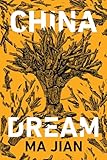 China Dream by Ma Jian (translated by Flora Drew): A new novel from the Chinese novelist who lives in exile in the U.K. and whose books have never been allowed to appear in China. A dystopian satire where the dystopia is today, and an exploration of totalitarianism in China. Madeleine Thien writes for The Guardian: “Ma has a marksman’s eye for the contradictions of his country and his generation, and the responsibilities and buried dreams they carry. His perceptiveness, combined with a genius for capturing people who come from all classes, occupations, backgrounds and beliefs; for identifying the fallibility, comedy and despair of living in absurd times, has allowed him to compassionately detail China’s complex inner lives.” (Lydia)
China Dream by Ma Jian (translated by Flora Drew): A new novel from the Chinese novelist who lives in exile in the U.K. and whose books have never been allowed to appear in China. A dystopian satire where the dystopia is today, and an exploration of totalitarianism in China. Madeleine Thien writes for The Guardian: “Ma has a marksman’s eye for the contradictions of his country and his generation, and the responsibilities and buried dreams they carry. His perceptiveness, combined with a genius for capturing people who come from all classes, occupations, backgrounds and beliefs; for identifying the fallibility, comedy and despair of living in absurd times, has allowed him to compassionately detail China’s complex inner lives.” (Lydia)
 The Dinner Guest by Gabriela Ybarra (translated by Natasha Wimmer): Ybarra’s critically acclaimed first novel, which won the Euskadi Literature Prize 2016 and was longlisted for the Man Booker International Prize in 2018. Her novel makes connections between two losses in her family: her mother’s private death from cancer and her grandfather’s public kidnapping and murder by terrorists in the 1970s. Drawing on research and personal experiences, the book creatively blends nonfiction and fiction. The Irish Times praises her work as a “captivating debut…written with the forensic eye of a true crime writer.” (Zoë)
The Dinner Guest by Gabriela Ybarra (translated by Natasha Wimmer): Ybarra’s critically acclaimed first novel, which won the Euskadi Literature Prize 2016 and was longlisted for the Man Booker International Prize in 2018. Her novel makes connections between two losses in her family: her mother’s private death from cancer and her grandfather’s public kidnapping and murder by terrorists in the 1970s. Drawing on research and personal experiences, the book creatively blends nonfiction and fiction. The Irish Times praises her work as a “captivating debut…written with the forensic eye of a true crime writer.” (Zoë)
 Rough Magic by Lara Prior-Palmer: Lots of people grow up loving horses; few of them end up competing (and winning) in the “world’s longest, toughest horse race.” Lara Prior-Palmer, the niece of famed British equestrian Lucinda Green, is just the person to attempt that challenge, galloping across 1,000 kilometers of Mongolian grassland, competing in a country so adept at riding that they once conquered the world from the backs of horses. In Rough Magic, Prior-Palmer follows in the hoofs of Genghis Khan and becomes the first woman to win the challenge. (Ed)
Rough Magic by Lara Prior-Palmer: Lots of people grow up loving horses; few of them end up competing (and winning) in the “world’s longest, toughest horse race.” Lara Prior-Palmer, the niece of famed British equestrian Lucinda Green, is just the person to attempt that challenge, galloping across 1,000 kilometers of Mongolian grassland, competing in a country so adept at riding that they once conquered the world from the backs of horses. In Rough Magic, Prior-Palmer follows in the hoofs of Genghis Khan and becomes the first woman to win the challenge. (Ed)
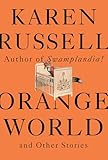 Orange World and Other Stories by Karen Russell: MacArthur Genius Grant-winner Russell, whose debut Swamplandia was a finalist for the 2012 Pulitzer Prize for Fiction, returns with a collection of eight short stories. A fearful mother strikes up a bargain with the devil. A young man falls in love with a “bog girl.” A midwestern retiree adopts a young tornado. The stories, through the outlandish and fantastical, explore the minutia and heart of humanity. Kirkus’ starred review called the collection “a momentous feat of storytelling in an already illustrious career.” (Carolyn)
Orange World and Other Stories by Karen Russell: MacArthur Genius Grant-winner Russell, whose debut Swamplandia was a finalist for the 2012 Pulitzer Prize for Fiction, returns with a collection of eight short stories. A fearful mother strikes up a bargain with the devil. A young man falls in love with a “bog girl.” A midwestern retiree adopts a young tornado. The stories, through the outlandish and fantastical, explore the minutia and heart of humanity. Kirkus’ starred review called the collection “a momentous feat of storytelling in an already illustrious career.” (Carolyn)
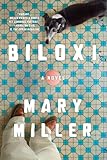 Biloxi by Mary Miller: A “Free Dogs” sign changes Louis McDonald Jr.’s life forever. The 63-year-old retiree—lonely from being left by his wife; grieving his father; and newly retired—adopts Layla, a overweight, black-and-white mixed breed, on a whim. His once solitary and sedentary life gives way, with Layla’s help, to one full of love and adventure. Publishers Weekly wrote the “charming and terrific” novel is “a witty, insightful exploration of masculinity and self-worth.” (Carolyn)
Biloxi by Mary Miller: A “Free Dogs” sign changes Louis McDonald Jr.’s life forever. The 63-year-old retiree—lonely from being left by his wife; grieving his father; and newly retired—adopts Layla, a overweight, black-and-white mixed breed, on a whim. His once solitary and sedentary life gives way, with Layla’s help, to one full of love and adventure. Publishers Weekly wrote the “charming and terrific” novel is “a witty, insightful exploration of masculinity and self-worth.” (Carolyn)
 Red Birds by Mohammed Hanif: Hanif, whose debut A Case of Exploding Mangoes was long-listed for the Booker, returns with a dark, absurd satire about American midadventures in the Middle East. When an American bomber pilot crash lands in the desert, he is rescued by Momo, a teenager from the camp he was sent to bomb. Publishers Weekly‘s starred review writes that the novel “manages to remain delightful and unpredictable even in its darkest moments, highlighting the hypocrisies and constant confusions of American intervention abroad.” (Carolyn)
Red Birds by Mohammed Hanif: Hanif, whose debut A Case of Exploding Mangoes was long-listed for the Booker, returns with a dark, absurd satire about American midadventures in the Middle East. When an American bomber pilot crash lands in the desert, he is rescued by Momo, a teenager from the camp he was sent to bomb. Publishers Weekly‘s starred review writes that the novel “manages to remain delightful and unpredictable even in its darkest moments, highlighting the hypocrisies and constant confusions of American intervention abroad.” (Carolyn)
 The Seven or Eight Deaths of Stella Fortuna by Juliet Grame: A debut, century-spanning novel about the life of Stella Fortuna, a 100-year-old, now-brain damaged woman. Told from the perspective of one of her granddaughters, the novel tells Stella’s—and subsequently the family’s—story through the lens of Stella’s many near-death experiences. A portrait of messy family dynamics, the immigrant experience, and a woman’s place in the world. Publishers Weekly starred review calls the novel “sharp and richly satisfying” and “vivid and moving.” (Carolyn)
The Seven or Eight Deaths of Stella Fortuna by Juliet Grame: A debut, century-spanning novel about the life of Stella Fortuna, a 100-year-old, now-brain damaged woman. Told from the perspective of one of her granddaughters, the novel tells Stella’s—and subsequently the family’s—story through the lens of Stella’s many near-death experiences. A portrait of messy family dynamics, the immigrant experience, and a woman’s place in the world. Publishers Weekly starred review calls the novel “sharp and richly satisfying” and “vivid and moving.” (Carolyn)
 Once More We Saw Stars by Jayson Greene: Greene, a freelance journalist, opens his memoir with the horrifying, heart-wrenching freak-accident that changed his (and his family’s) life forever: his two-year-old daughter Greta being killed after a brick fell from a windowsill and hit her on the head. The memoir, which is raw and honest and spiritual, follows the Greene family as they journey through their immeasurable grief. Cheryl Strayed writes, “A gripping and beautiful book about the power of love in the face of unimaginable loss.” (Carolyn)
Once More We Saw Stars by Jayson Greene: Greene, a freelance journalist, opens his memoir with the horrifying, heart-wrenching freak-accident that changed his (and his family’s) life forever: his two-year-old daughter Greta being killed after a brick fell from a windowsill and hit her on the head. The memoir, which is raw and honest and spiritual, follows the Greene family as they journey through their immeasurable grief. Cheryl Strayed writes, “A gripping and beautiful book about the power of love in the face of unimaginable loss.” (Carolyn)
 Out East by John Glynn: Sun-soaked and brimming with youth, Glynn’s debut memoir chronicles a life-changing summer spent in a Montauk share house. With honesty, heart, and generosity, the memoir explores friendship, first love, and identity. Andre Aciman writes, “An unforgettable story told with feeling and humor and above all with the razor-sharp skill of a delicate and highly gifted writer.” (Carolyn)
Out East by John Glynn: Sun-soaked and brimming with youth, Glynn’s debut memoir chronicles a life-changing summer spent in a Montauk share house. With honesty, heart, and generosity, the memoir explores friendship, first love, and identity. Andre Aciman writes, “An unforgettable story told with feeling and humor and above all with the razor-sharp skill of a delicate and highly gifted writer.” (Carolyn)The post May Preview: The Millions Most Anticipated (This Month) appeared first on The Millions.
from The Millions http://bit.ly/2XXywxq
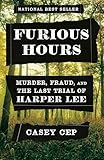



Comments
Post a Comment